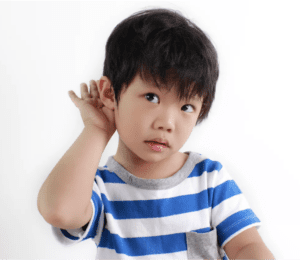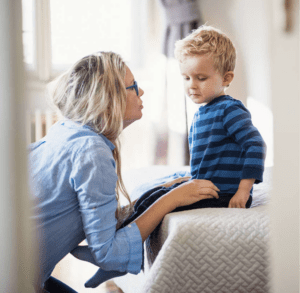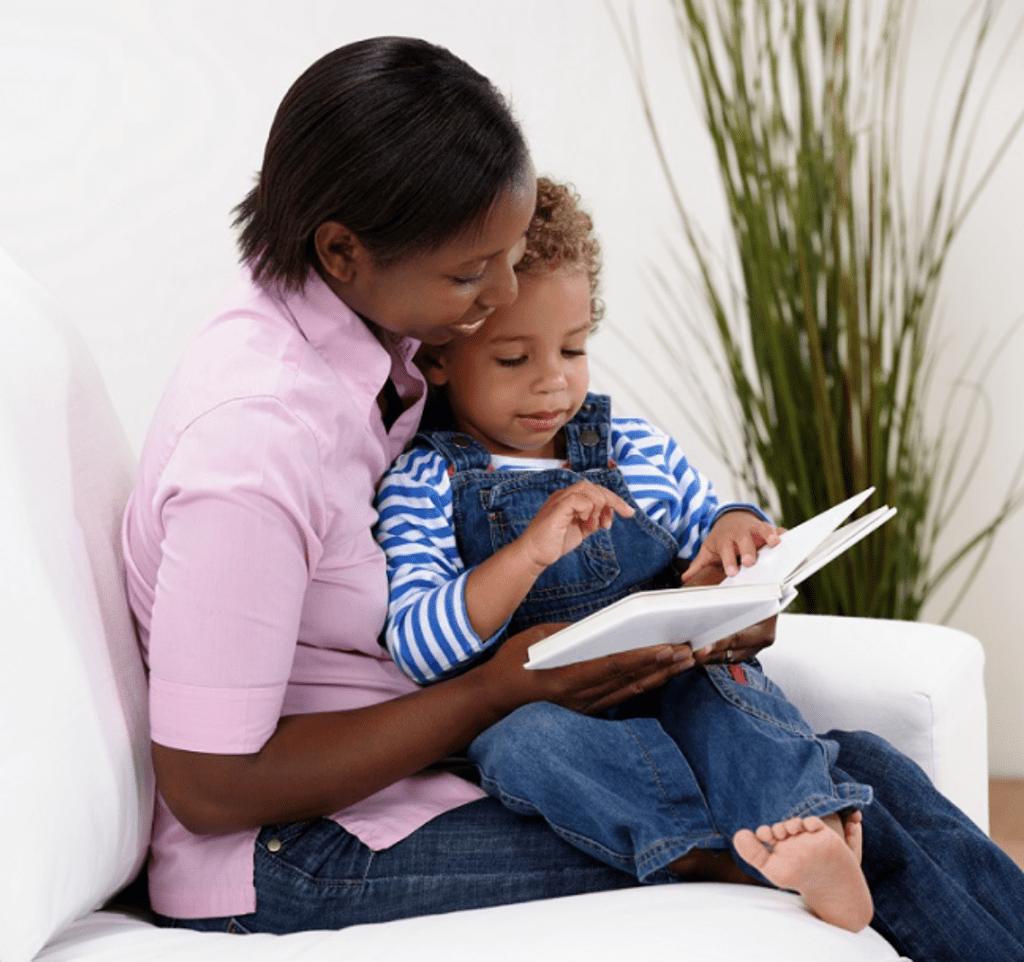Active listening skills in toddlers are a fundamental part of early childhood. In fact, active listening has a major impact on building the communication skills children need both inside and outside of the classroom as suggested by Oxford Learning. Therefore, the earlier you start practicing, the better! When toddlers are able to actively listen, they are positively impacting their productivity and relationships. Not only that, but these skills allow them to recognize and understand others’ feelings as well as empathize and avoid conflict.

Active listening skills in toddlers are an important “soft skill” that can be acquired and developed overtime. However, it’s important to remember that the development of these skills takes time and patience to master. This guide will walk you through how to improve your toddler’s active listening skills to help them learn, grow, and succeed. At Right Start Children’s Services, we are fully committed to aiding families through serving as an early intervention resource and support. We provide education and assistance to help your child develop new skills that can make their daily life easier.
What are Active Listening Skills in Toddlers?
Improving active listening skills in toddlers begins with understanding what exactly these skills entail. When your little one hears something you tell them, that is one thing. However, active listening skills include their ability to actually pay attention to what you and others say, focus on both the words and their meanings, and understand the verbal text. Some examples of active listening skills in toddlers include:
- Maintaining eye contact with someone as they speak
- Giving people time to finish their thoughts
- Not interrupting someone as they speak
- Not predicting what others will say
- Paying attention to the body language of others
- Responding to someone speaking with relevant questions
- Being able to repeat what someone said

By two years old, your toddler should be able to actively listen anywhere between 3 and 6 minutes. Although, don’t fret if your little one is unable to pay attention for that long. It takes time and practice to improve active listening skills in toddlers. Not to forget, every child is unique and develops their skills at different rates! In the meantime, there are plenty of routines and activities you can participate in to help improve your toddler’s active listening skills.
How Do I Improve My Child's Active Listening Skills?
When it comes to improving active listening skills in toddlers, there are many opportunities to explore their development of these abilities. The best part is that most of these strategies don’t require a lot of items and can easily be done at home. Below, you will find a list of fun ways you can help your child practice their active listening skills.
- Lead by Example: As we know, children tend to copy and mimic the actions of others. Therefore, one of the best ways to teach your toddler active listening skills is by showing them how it’s done right. When you speak to your little one, be sure to pay attention to them, maintain eye contact, and ask plenty of questions about what they are saying.
- Read Together: Reading with your toddler is another great way to improve active listening skills in toddlers. Be sure to choose books that include bright colors, engaging elements, and pictures. When you and your child look at the pages together, you’re helping them focus and understand what they are reading.
- Change Stories: Tell your toddler a short story about something they find interesting. Then, repeat the story several times but change a few small details about the story. Ask them if they can remember what was different about each story.
- Summarize Stories: Similar to the strategy above, tell your toddler a longer story. Then, ask them to retell a condensed version of the story. This way, they are practicing their ability to remember and repeat what you say.
- Guess the Sound: Another great way to improve active listening skills in toddlers is by playing sounds and noises. Then, you can ask them what they heard. For example, a cow mooing. This will help them focus on that one sound and not other sounds that may be around them.
Of course, there are plenty of other ways you can help improve your toddler’s active listening skills but these are just a few. Any chance that you have to teach your child these skills is important. Remember to practice and don’t give up if your little one is having trouble listening. But what if your child just won’t pay attention to you or listen despite their age and your continued efforts?

I'm Concerned
If you believe your toddler’s active listening skills just aren’t there, Right Start may be able to help! Acting early on concerns about your child’s development is important and can help them catch up quicker. Act early if you believe your toddler is having difficulties paying attention to others, listening, and maintaining relationships. If you believe that something is off, first talk to your doctor, express any concerns, and ask about developmental screenings.
If your little one is diagnosed with a developmental delay or disability and is between the ages of zero (birth) and three years old, they may be eligible to receive Early Intervention Services which you can check through getting in touch with your local Early Intervention Program. If you’d like us to start the early intervention process for you, then kindly fill out the referral form on our website and we will get in touch with you on the next steps!
Within Early Intervention, Special Instruction as well as Behavioral Support work to make sure that your child has the necessary development and skills to achieve his or her goals and maintain healthy relationships with others. The goal of both special instruction and behavior support is to help your child:
- Develop vital skills (including active listening skills) to perform necessary behaviors.
- Build healthy relationships with others.
- Improve their self-concept, creativity, and independence.
After reading this guide, if you have any questions, concerns, or wish to learn more information about Right Start Children’s Services, please feel free to contact us at any time. We are here to support your family and help your little one get back on track developmentally.
Leave a Reply